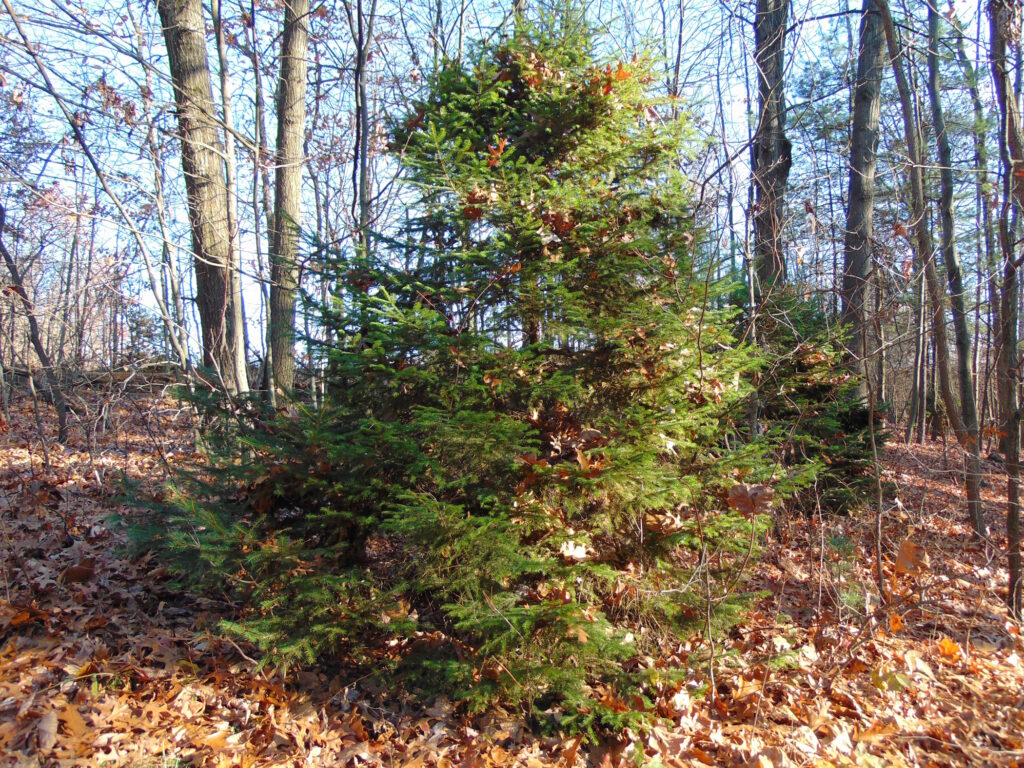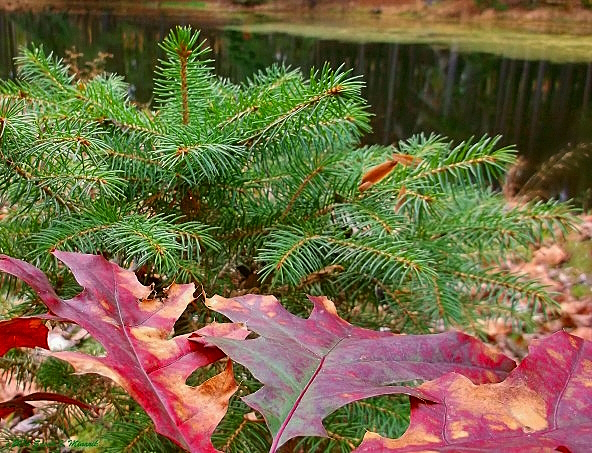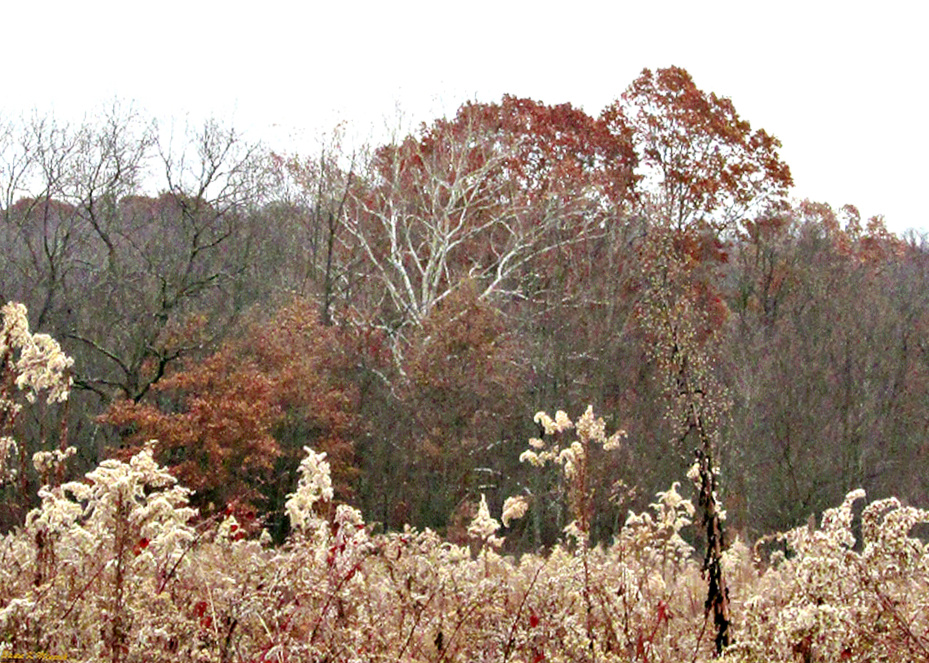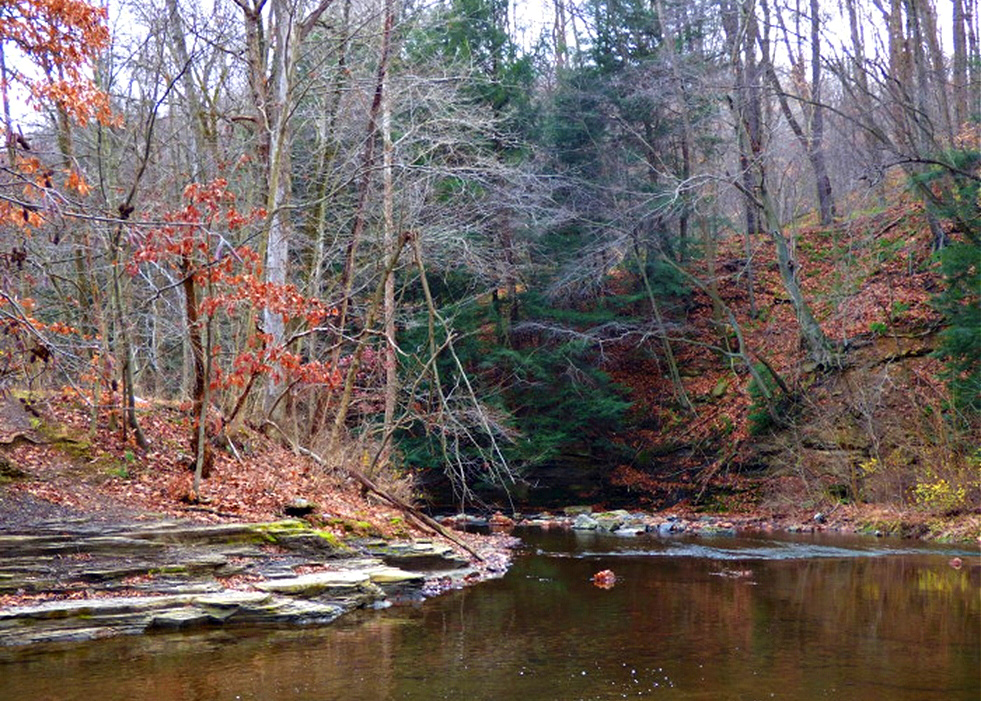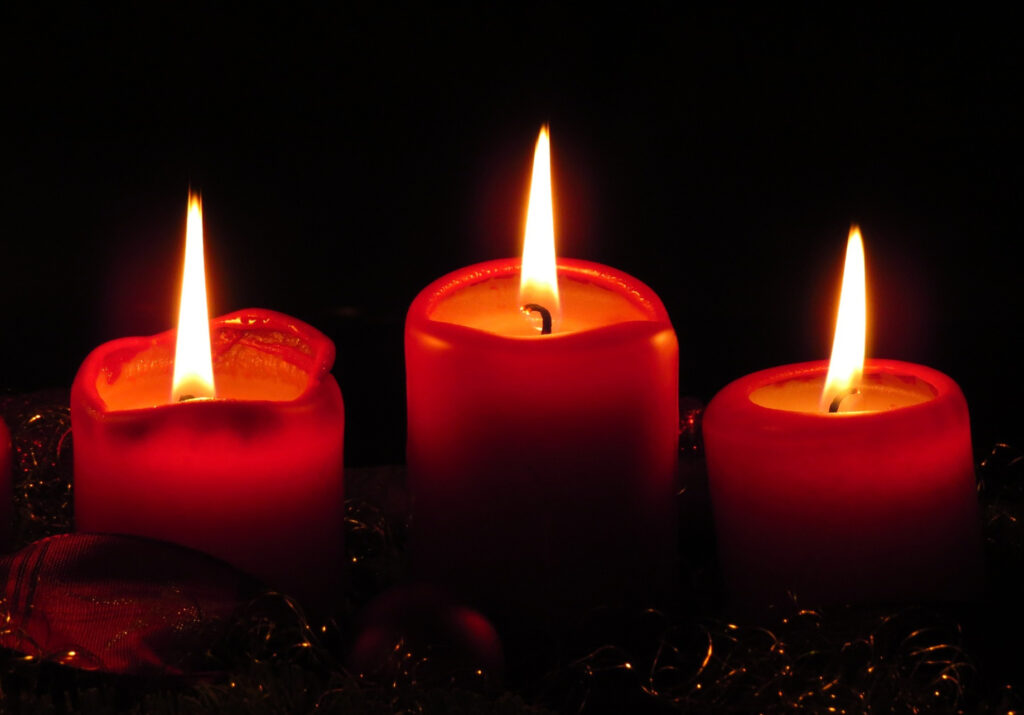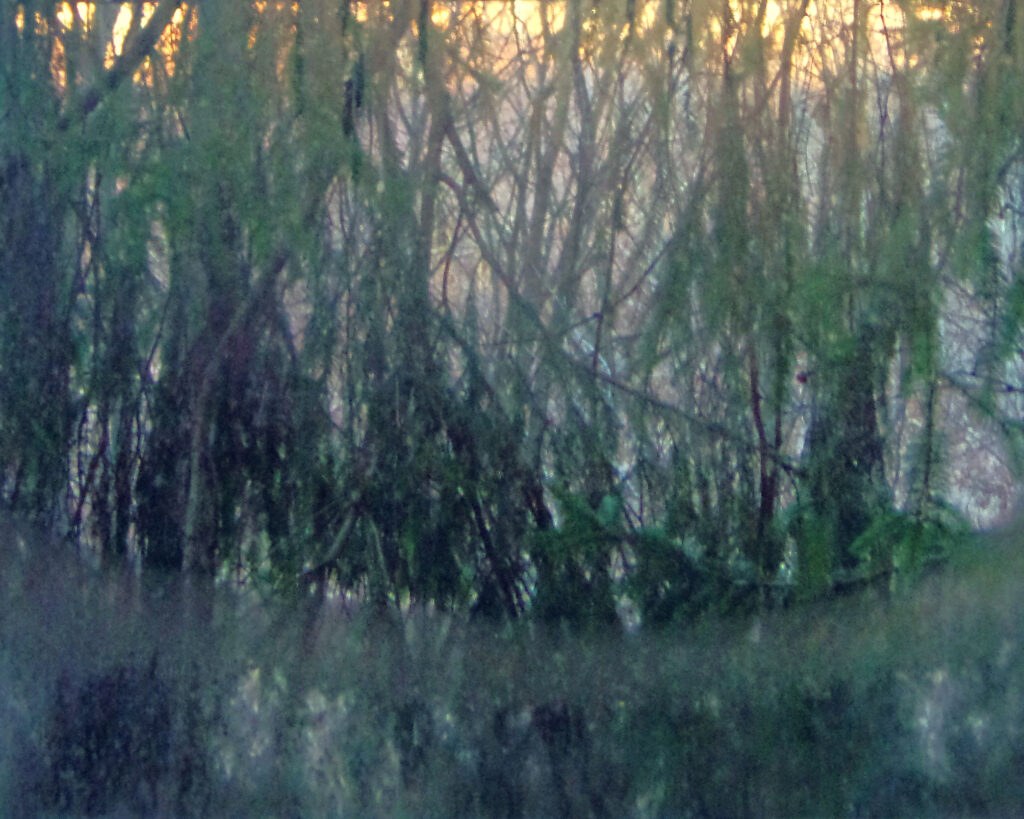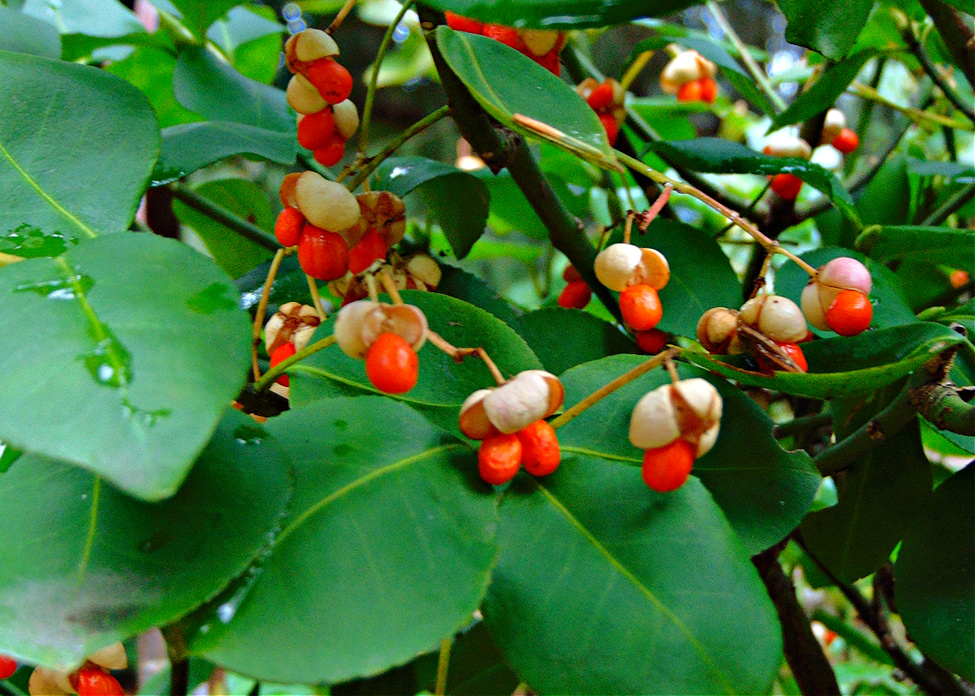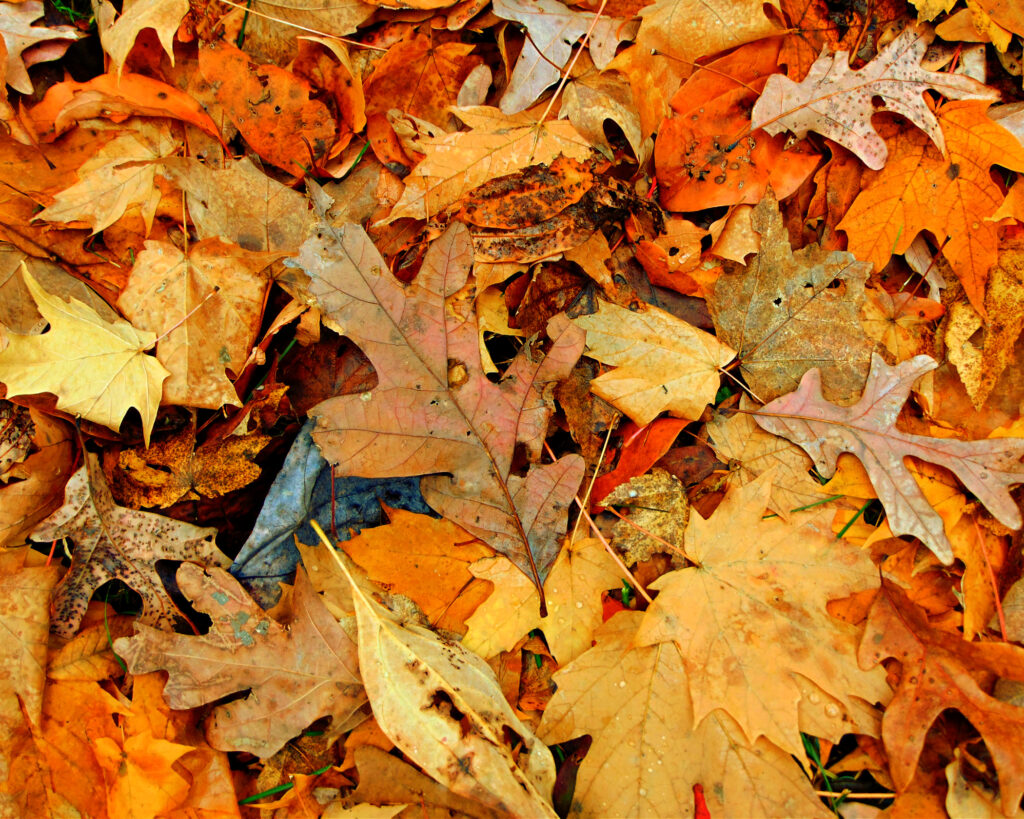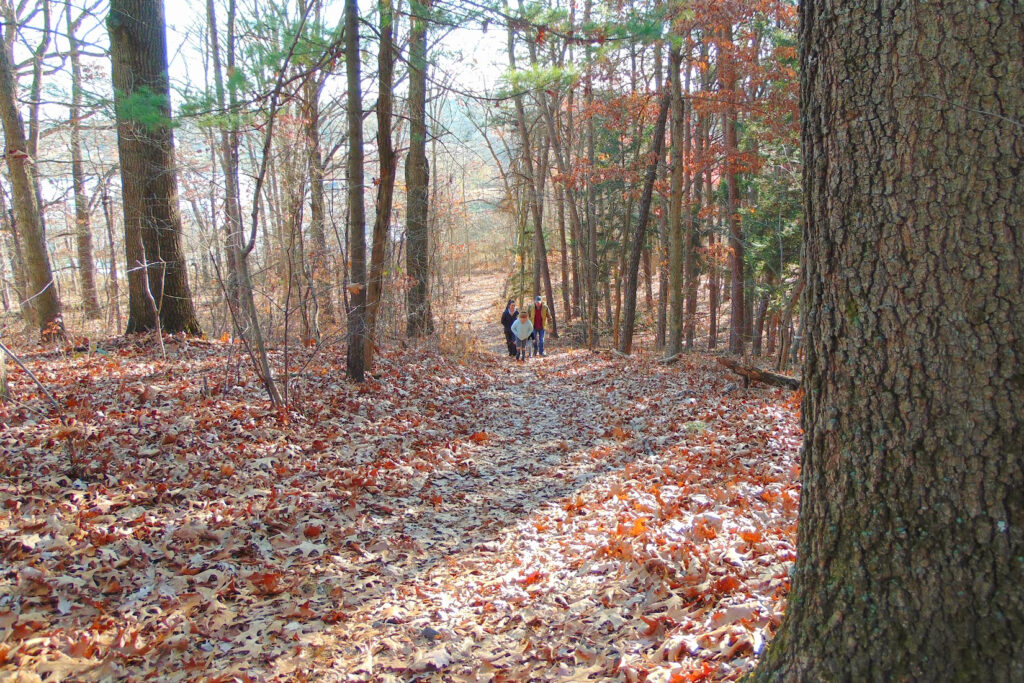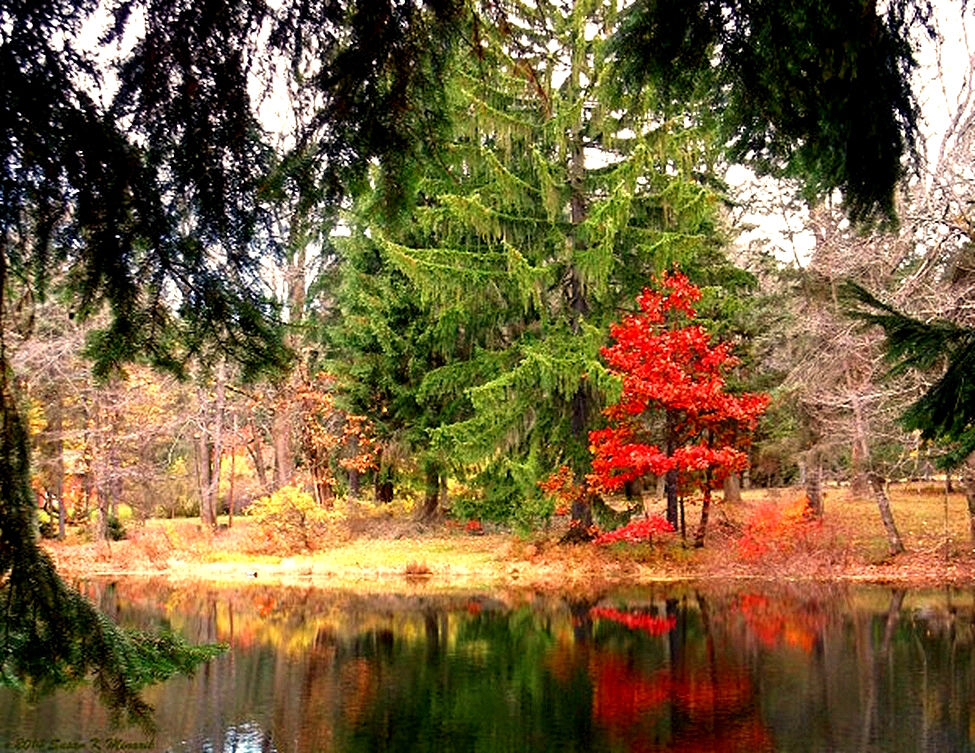
Little Pine was still a bit gloomy the next morning as his mother served breakfast. Only one of the red oak leaves remained from the small tree that grew beside him, and Little Pine could see that it might not last another day.
The remaining leaf was the one that Little Pine had called “Red Leaf Too,” because his jolly disposition reminded him of Red Leaf, Little Pine’s best friend from last year. He called him “Too” for short.
When Little Pine finished breakfast, he was surprised to find Too waiting for him.
“Hi, Little Pine!” Too said brightly. “I think this is my last day here, and I wanted to invite you to go for a walk with me to meet my mother’s cousin,” Too told Little Pine. Just as trees can move about the forest, leaves can detach from their trees when no humans are watching and romp about the woods. “She lives on the south side of the lake.” So off they went.
“What do you think it will be like to go Home, Too?” Little Pine asked his friend as they walked together.
“Oh! I remember Home very well, Little Pine. It’s filled with dancing light and music and more colors than the rainbow. When we return, all of the returning leaf-spirits attend the Great Gathering to sing and tell stories about their time on Earth. The little Leaves-in-Training can hardly believe how amazing it must be to come here, and they study and practice even harder when they return to their schools after the Great Gathering.
“I’m excited because, after this season’s Gathering, I’ll get to teach the new Leaves-in-Training some of the things they need to know before they can take on an Earth-form.”
He explained that all leaves, even the needles of the evergreens, trained for ages before they were ready for the Earth adventure. First they learned the things that all leaves have in common. Then they decided what species they wanted to be first and went through specialized training.
Little Pine wrinkled his brow. “I don’t remember Home at all. But it sure sounds interesting, and wonderful.”
“Oh, it is!” Too said, “You don’t remember it because pines get to stay on Earth a long time. And time covers up our memories. It’s meant to be that way so you can experience things here without distraction. I remember because I’ve been many different kinds of leaves and I’ve been here many, many times.”
“I’m going to miss you, Too,” Little Pine said.
“Oh, Little Pine, you know that my spirit will always be with you. Just like your first leaf-friend, Red Leaf, I will hear all the songs and laughter of your heart. And sometimes you’ll hear mine as well.
“Listen, I had a dream last night. I saw the preparations for the Festival of Light, and I can tell you that it’s going to be very special this year. You’re in for a wonderful adventure. And I expect to hear much laughter and song from you as I settle in at Home.”
Little Pine didn’t know whether to believe him or not. But it seemed like a fine story, and he decided that at least he could pretend that it was true. “Watch for signs,” Too tells him. “Listen for the music. And always pay attention to your dreams.”
Just then they reached the edge of the lake, and Too pointed to a scene through the pine branches. “Look!” he said. “There’s my mother’s cousin. See how tall and beautiful she is, with all her remaining red leaves? And look, there’s a great spruce beside her. They have been growing here together for many, many years. And the spruce has had red leaf friends ever since she was very small, like you.
“You will have red leaf friends all your days, too, Little Pine,” Too said, smiling. “Always remember that you are a child of the Great Yes, and a part of its song. And like all of its children, you are cherished and dearly, dearly loved, and all that you every truly need will be provided.”
